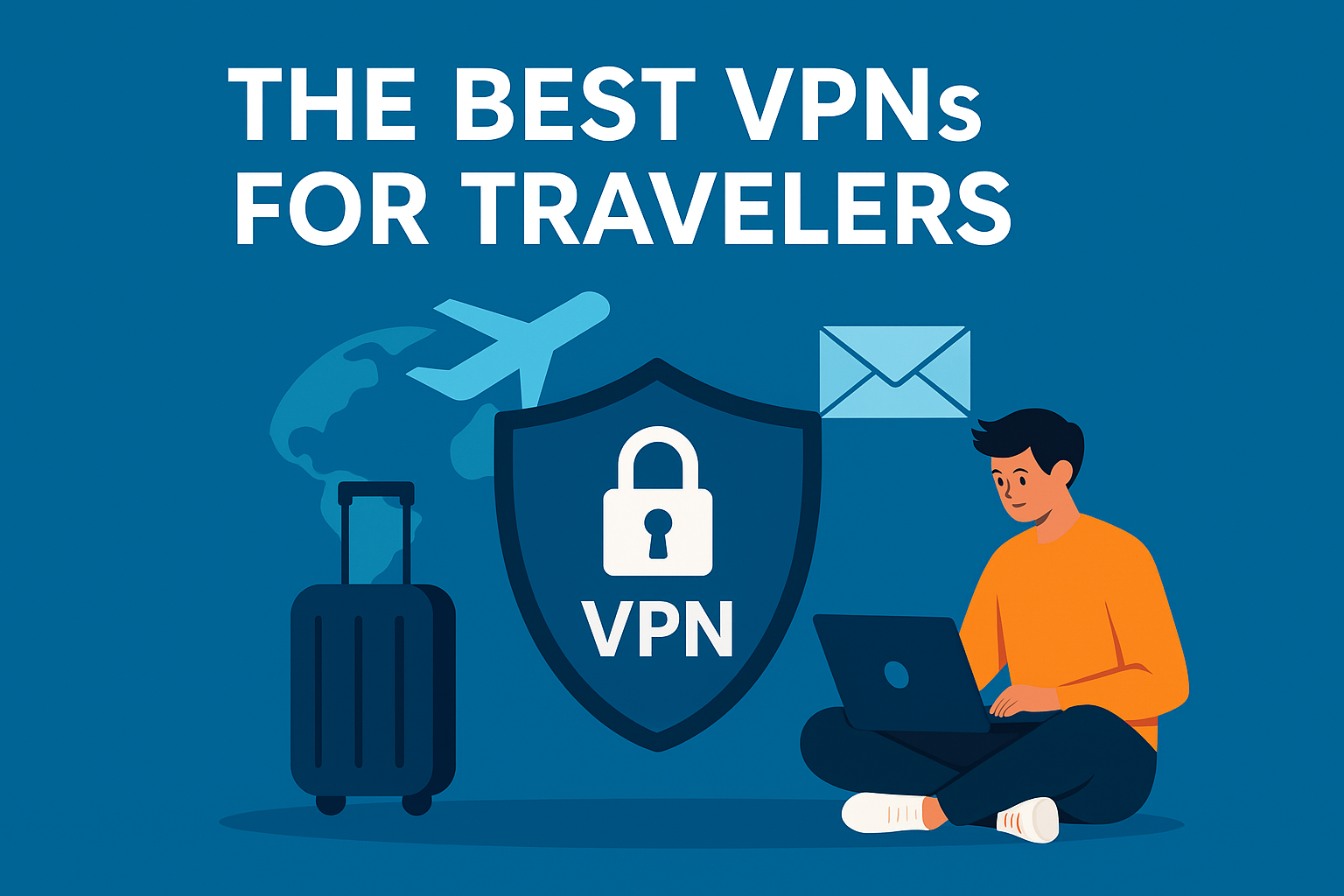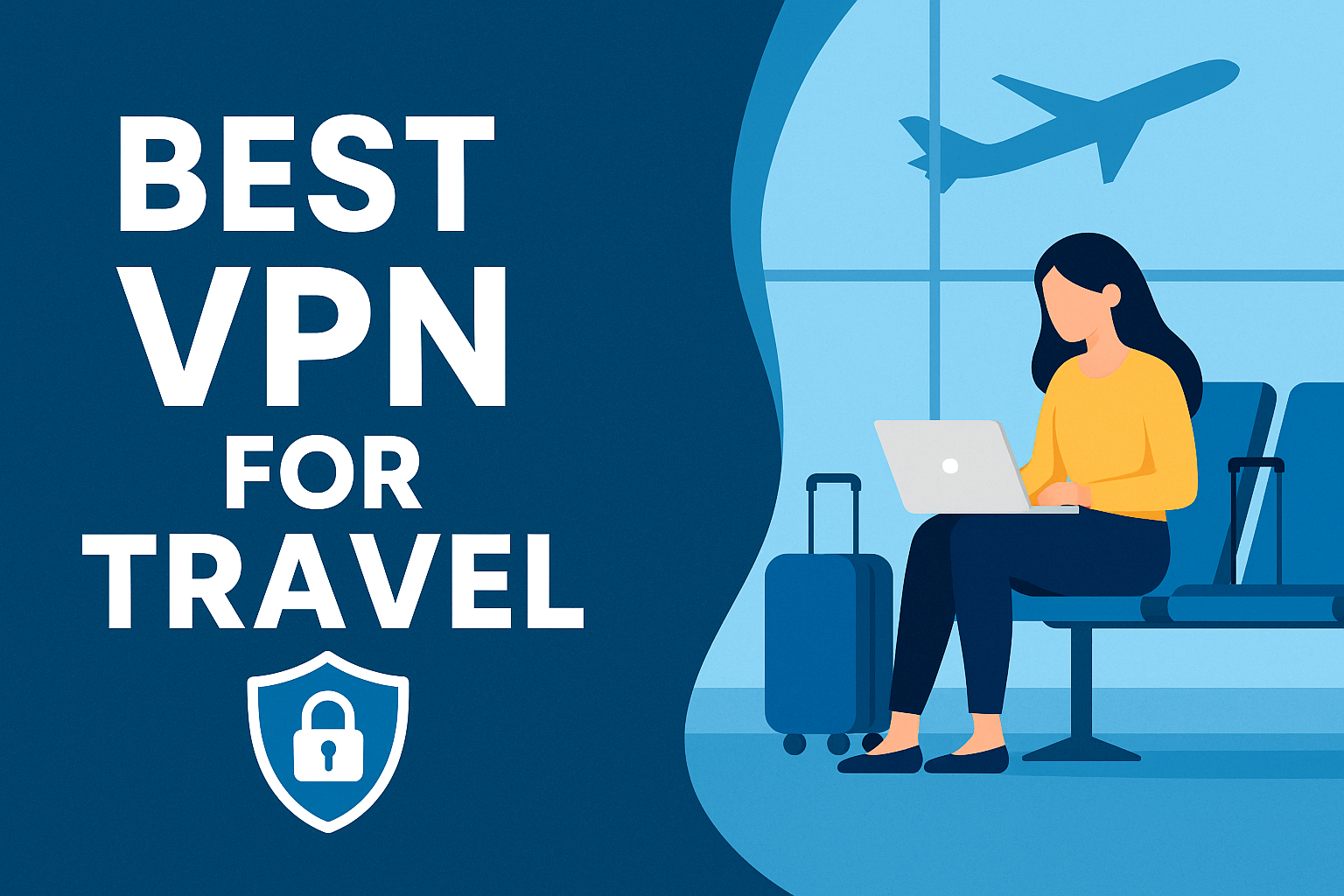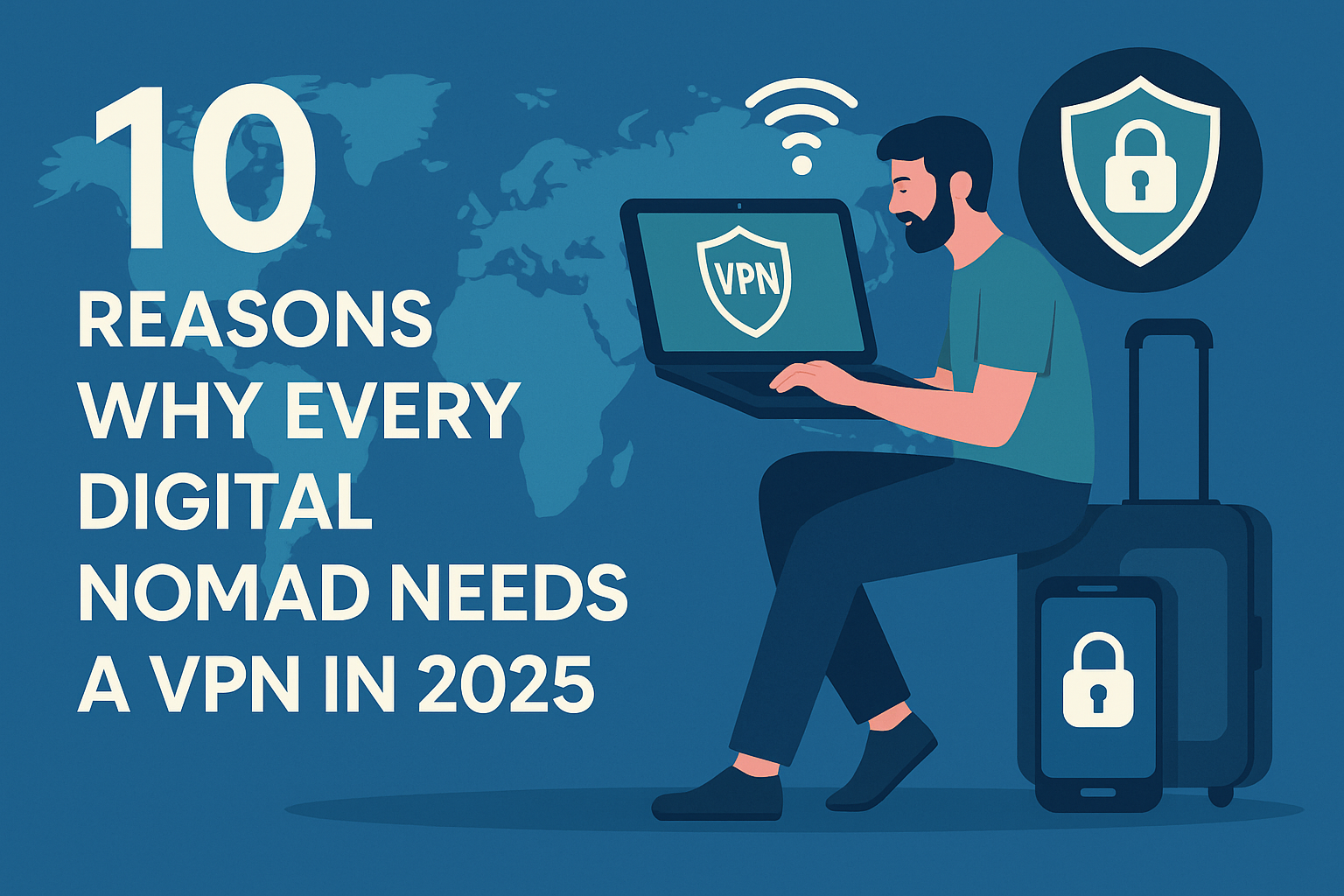
Introduction: Why Every Traveler Must Have a VPN
Traveling opens doors to breathtaking experiences, new cultures, and unforgettable adventures. But while you’re exploring the world, your digital life becomes vulnerable. Public WiFi networks in airports, hotels, cafes, and even co-working spaces are often unsecured, making you an easy target for hackers, data sniffers, and identity thieves.
That’s where a VPN (Virtual Private Network) becomes your invisible shield. With the right VPN, you can browse securely, access your favorite content from anywhere, and keep cybercriminals at bay.
In this ultimate guide, we’ll dive deep into why VPNs are essential for travelers, how they work, what features matter most, and of course — the top VPNs that every globetrotter should consider in 2025.
The Growing Risks of Public WiFi for Travelers
Imagine sitting in a bustling airport lounge, sipping coffee, and scrolling through your bank account or email. Harmless, right? Not quite. Public WiFi networks are notorious for being unsecured and unencrypted.
Here’s what happens:
- Man-in-the-middle attacks: Hackers intercept the data you send and receive.
- Fake WiFi hotspots: Cybercriminals create WiFi names that mimic legitimate networks to trick users.
- Data sniffing tools: Anyone with basic tech skills can monitor unprotected networks and capture sensitive information.
For frequent travelers, this isn’t paranoia — it’s a digital reality.
What is a VPN and How Does It Protect You?
A VPN creates a secure, encrypted tunnel between your device and the internet. This tunnel shields your data from prying eyes, whether it’s login credentials, payment details, or personal messages.
When connected to a VPN:
- Your IP address is masked.
- Your online activity is encrypted.
- Your traffic is rerouted through secure servers in locations you choose.
In simpler terms: A VPN makes you anonymous and untouchable while browsing, no matter where you are.
Key Benefits of Using a VPN While Traveling
1. Security on Public WiFi
Hackers can’t intercept what they can’t see. VPN encryption ensures your private information stays private.
2. Bypass Geo-Restrictions
Access Netflix libraries, Hulu, BBC iPlayer, and more from anywhere in the world by switching your virtual location.
3. Access Censored Websites
In countries with restricted internet access, a VPN lets you browse freely and safely.
4. Secure Online Banking
Prevent financial data leaks while checking your bank accounts on public networks.
5. Book Cheaper Flights & Hotels
Travel sites sometimes display different prices based on your location. Use a VPN to find better deals.
Essential VPN Features for Travelers
1. Speed & Reliability
A slow VPN defeats the purpose. Choose VPNs known for high-speed servers optimized for streaming and browsing.
2. Global Server Network
More server locations mean better access to geo-restricted content and faster, localized connections.
3. Strong Encryption Protocols
Look for AES-256 encryption and modern VPN protocols like WireGuard or OpenVPN for bulletproof security.
4. No-Logs Policy
Your VPN provider should not store any data about your activity. Always choose a zero-logs VPN.
5. Kill Switch
If your VPN connection drops, the kill switch cuts your internet to prevent accidental exposure.
6. Obfuscated Servers
Essential for traveling to countries with VPN restrictions or heavy surveillance.
7. Device Compatibility
Ensure the VPN offers apps for all your devices — phones, tablets, laptops, and even routers.
The Best VPNs for Travelers in 2025
1. ExpressVPN — The All-Rounder for Travelers
ExpressVPN offers over 3,000 servers in 94 countries. Its Lightway protocol ensures blazing-fast speeds, even on unreliable hotel WiFi. With a strict no-logs policy and easy-to-use mobile apps, it’s perfect for travelers who need speed, privacy, and reliability.
2. NordVPN — Best for Advanced Security Features
NordVPN’s Meshnet feature allows secure device-to-device connections worldwide. Its obfuscated servers bypass censorship, and the Double VPN option routes your traffic through two servers for extra anonymity. Ideal for digital nomads working abroad.
3. ProtonVPN — Transparent and Privacy-First
Built by the team behind ProtonMail, ProtonVPN is open-source, has a proven no-logs policy, and offers a Secure Core network that routes traffic through privacy-friendly countries first. Great for privacy purists and journalists traveling in high-risk regions.
4. Surfshark — Best Value for Unlimited Devices
Surfshark allows unlimited simultaneous connections on a single account. It’s perfect for families or travelers with multiple gadgets. Features like CleanWeb (ad blocker) and NoBorders mode enhance the browsing experience abroad.
5. ZoogVPN — Affordable and Simple
If you’re a casual traveler needing basic protection without breaking the bank, ZoogVPN is a solid choice. It offers a generous free plan, decent speeds, and strong encryption.
How to Set Up Your VPN Before Traveling
- Choose a reputable VPN (from the list above).
- Download and install the VPN on all devices.
- Activate important features like the kill switch and auto-connect.
- Test connections to various servers to check speed.
- Save login credentials securely.
Always set up and test your VPN before departure to avoid issues in regions with restricted VPN access.
Using VPNs to Save Money on Travel Bookings
Booking platforms often display different prices based on your browsing location. By switching server locations with a VPN, you can compare prices as if you were in different countries. Many savvy travelers save hundreds on flights and hotel bookings using this trick.
VPNs for Remote Workers & Digital Nomads
If you work remotely, a VPN is non-negotiable. Protecting client data, securing video calls, and accessing your company’s internal tools safely are crucial. NordVPN’s Meshnet and ProtonVPN’s Secure Core are especially useful for remote professionals handling sensitive data.
Common Issues Travelers Face with VPNs (and Solutions)
- Slow Speeds: Switch to a closer server or a lightweight protocol like WireGuard.
- Connection Drops: Always enable the kill switch and auto-reconnect features.
- Streaming Restrictions: Some VPN servers are optimized for streaming — always check before connecting.
- Blocked VPN Access Abroad: Use obfuscated servers or stealth modes provided by top VPNs.
Conclusion: Your Travel Security Toolkit
A VPN isn’t a luxury for travelers — it’s a necessity. Whether you’re a casual tourist, a business traveler, or a digital nomad, protecting your data and accessing the full internet experience without borders is essential.
Choose a VPN that fits your travel style, set it up before your trip, and stay secure wherever you go.
Ready to Travel Smart?
👉 Start with ExpressVPN for the best all-around travel protection.


